Workforce training could be coming to Newtown
The program aims to teach 12 people from North Sarasota how to perform air conditioning maintenance.
By Nicole Rodriguez – Staff Writer – Herald Tribune
SARASOTA — A proposed workforce training program could finally create long-term, high-paying jobs in impoverished Newtown if the Sarasota City Commission supports it.
The program, championed by Commissioner Willie Charles Shaw, aims to provide 12 individuals from North Sarasota with training in air conditioning maintenance — a trade that pays $40,000 to $45,000 annually for entry level positions. The four-month program would start in May, with classes three days a week at the Boys and Girls Club in Newtown, where unemployment is notoriously high.
Shaw is partnering with the Argus Foundation, a nonprofit that promotes business and collaboration between the public and private sectors, and CareerEdge, an organization dedicated to expanding workforce development, to pitch the idea to the commission and ask for more than $30,000 from the city to launch the program at the board’s April 1 meeting.
“My hope is to see individuals become skill-trained to do these jobs that are going to be in the area,” Shaw said.
CoolToday, a local air conditioning and electrical services company, has committed to provide a trainer for the students, while Argus plans to pitch in $5,000 for the program in addition to $1,100 it already spent on consulting services to ensure this kind of job training is what Newtown needs. CareerEdge would contribute roughly $15,000 for training costs and paid internships after the program ends. The city’s contribution would cover the cost of equipment that would be used for future classes, Mireya Eavey, chief workforce officer for the Greater Sarasota Chamber of Commerce leading the CareerEdge initiative, said.
CareerEdge last year successfully started an automotive repair program at Suncoast Technical College and an air conditioning installation program at Manatee Technical College in which students, many of whom work during the day, received certification in the fields and went on to have sustainable careers, Eavey said.
It’s Eavey’s hope to replicate the success in North Sarasota, she said, adding that the program would create an opportunity for residents to work in the community where they live.
“We want to provide opportunities for individuals in Newtown to start a good-paying career, to be able to support their families,” Eavey said. “I want individuals to know that they have opportunities and they can make good wages and be able to afford to live here. Some of them may be able to start their own businesses.”
Several meetings were held last year by program proponents with community members, area employers and educators who voiced the need for such a program, said former Sarasota County Commissioner and Argus Executive Director Christine Robinson. She hopes the program will become a fixture in the community and eventually have its own dedicated building for workforce training in Newtown, Robinson said.
“The ultimate hope is that we’ll run this program through a couple of cycles and we’ll see success and expand the program to other areas and grow this to the point where they’ll need a building in Newtown and we can have a technical training school up there,” Robinson said. “But we want to be smart about this and make sure that there’s a need for a building.”
Twelfth Judicial Circuit Public Defender Larry Eger plans to participate by helping adult students regain suspended driver’s licenses and also help expunge criminal records to increase the chances of landing a job after training ends, Robinson added.
The program pitch comes on the heels of Newtown being designated as one of four Qualified Opportunity Zones in the city under the federal Tax Cuts and Jobs Act of 2017. The program for the economically distressed areas helps low-income communities by providing tax advantages for private individuals and corporations that invest in an Opportunity Zone Fund — a provision included in the sweeping tax bill signed into law by President Donald Trump in 2017. It encourages the private sector to reinvest capital gains from other investments into businesses and start-ups in the zones, city officials said.
The four zones mirror U.S. Census tracts and were selected based on poverty rate, family income, unemployment and other factors, city officials said. In addition to Newtown, the zones include the Rosemary District, Gillespie Park, Laurel Park, part of downtown and an area between Tuttle Avenue and Beneva Road. Investors are given a tax break based on the about of time they keep money in a fund. For example, investing gains in a fund for more than five years results in being taxed only on 90 percent of the gain, according to city documents. Leaving gains in a fund for seven years results in being taxed on 85 percent of the gain. If an investment is held in a fund for more than 10 years, the investor will be excluded from paying taxes on any returns the fund generated during the investment period.

